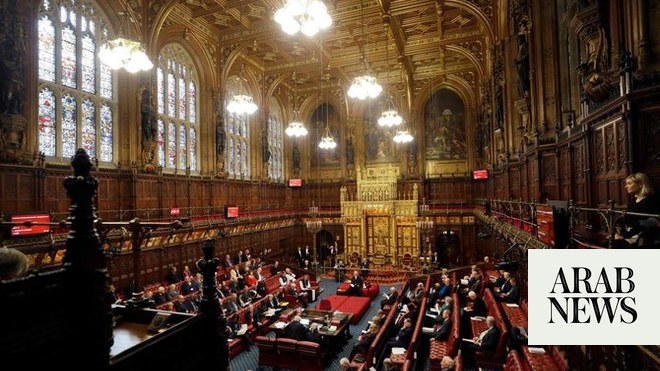
Environmental activists who accused police of intimidation and harassment have had a review decision in their favour withdrawn in controversial circumstances.
The decision, produced by the office of the police and crime commissioner for Devon and Cornwall, was particularly critical of Project Servator, a national counter-terrorism strategy, saying it was “increasingly being used as an intimidatory and oppressive national policing tactic”.
Officials have admitted that the withdrawal of a review that was highly critical of the policing of an incident during environmental protests at last year’s G7 summit in Cornwall “is a rare occurrence”.
Rob Higgs, a co-founder of Ocean Rebellion, which works to try to halt the destruction of marine biodiversity and to repair it, lodged a complaint with Devon and Cornwall police’s professional standards department about what he claimed was intimidation and harassment during police raids at a quarry and at a boatyard on 12 May last year, a month before the G7 summit.
He said the police actions were particularly concerning in light of government plans to curb the right to peaceful protest in the current policing bill.
Officers from Project Servator, a policing operation designed to disrupt criminality of various kinds including terrorism, visited Trevone quarry in Penryn, Cornwall, where Higgs lives and works, and a boatyard where he has a workshop. They were searching for Higgs, who was not at either location on the day they visited. Others who were there have complained that the tone of the police visits was intimidatory and amounted to harassment.
Higgs was neither arrested nor charged with any criminal offence after the police visits.
He lodged complaints with Devon and Cornwall police that the actions of the Project Servator officers were unlawful because they entered Trevone quarry without a warrant, an action he considers to be harassment and a breach of various parts of the Human Rights Act.
His complaint was not upheld by Devon and Cornwall police’s professional standards department, so he approached the office of the police and crime commissioner for Devon and Cornwall and asked for a review of the internal police investigation.
On 20 December he received the review, which was highly critical of the police and disagreed with the findings of the internal police complaint investigation that had vindicated the Project Servator officers. The review said the matter had not been dealt with in a “reasonable and proportionate” way in the internal police investigation and made a series of highly critical observations about Project Servator and the issues raised in Higgs’ complaint.
Comments in the report include:
Project Servator is “apparently increasingly being used as an intimidatory and oppressive national policing tactic”.
While police witnesses were interviewed about the incident, those visited by the police were not. “There appears to have been a quiescent acceptance of the police account of their actions by the [police] professional standards department.”
Potential misconduct by police officers who visited the quarry and boatyard should also be considered.
The matter should have been referred to the Independent Office for Police Conduct “given the politically sensitive and national implications of such disproportionality in a protest situation”.
However, two days after Higgs received the report he was contacted by the office of the police and crime commissioner to say there had been an “error” in the review and it was being withdrawn. Officials said this was a “rare occurrence”.
Higgs said: “Currently, in this country we still have the right to peaceful protest, which the policing bill would effectively remove. I’m worried about giving the police more power to curtail this. Too often they are already abusing the powers they have. I am suspicious about the police’s motivation in withdrawing this report.”
He said he and other climate activists were keen to work with police liaison officers about the nonviolent actions they are staging.
A spokesperson for the office of the police and crime commissioner for Devon, Cornwall and the Isles of Scilly said: “A quality assurance process identified that a complaint review carried out by our office did not meet our usual high standards and contained comments about policing which do not represent the views of our office. We therefore took the decision to overrule the review outcome and repeat the process to ensure that all recommendations are correct appropriate standards met. The complaint review has been reassigned to an alternative investigator and we hope to have concluded it by the end of this week.”
Shaun Sawyer, the chief constable of Devon and Cornwall police, said: “Devon and Cornwall police note the complaint from Mr Higgs and the initial decision of the office of the police and crime Commissioner to uphold the complaint.
“At the time, officers from Devon and Cornwall police were engaging with a number of individuals who had expressed a desire to peacefully protest at the event, the purpose of this being to facilitate that protest as effectively and safely as possible, while allowing the event of international significance to not be put under threat or unduly interrupted.
“Project Servator is an overt and engaging national policing tactic to ensure communities are alive to the threat of terrorism and the importance of being prepared and able to report suspicious activity as well as not putting any group in undue danger by protesting in a way which may increase threat as a result.”












